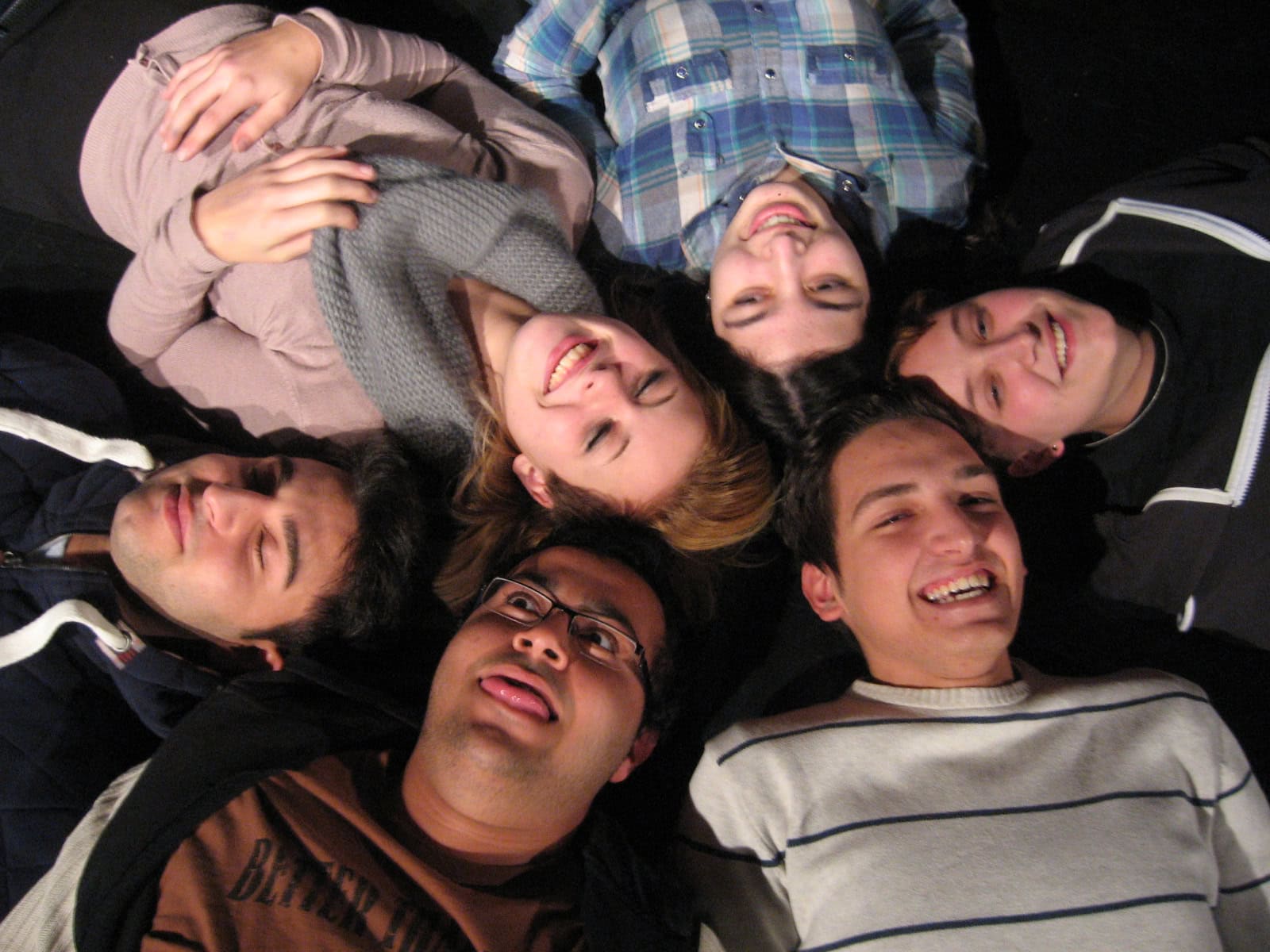The handbook is available– and now we offer three training programs for multipliers – tailored to your needs: for school teachers, social workers, media, dance and theatre teachers, and anyone else who works or would like to work in the field of political education with young people.
Get in touch with me and we will develop something that suits you and your institution perfectly. I come alone or with a colleague, depending on the size of the group. Here you find my workshop suggestions:
Workshop I: The Stranger(s) and Myself
Understanding and overcoming the appeal of right-wing populism and right-wing extremism.
E.g. as a 2-3 day workshop
The fear of the foreign is as old as humanity itself. However, what exactly is defined as ‘foereign’ is subject to constant change.
Initially, one naturally thinks of migrants, who have been at the centre of political discussions for many years, especially refugees. Conservative politicians, but especially those on the far right, essentially see them as a danger that we must defend ourselves against.
But the ‘foreign’ can also be anything else that brings change and unsettles us, be it advancing digitalisation, climate change, the Corona crisis or the demands of the LGBTQ movement.
Right-wing to far-right forces promise a world in which everything can remain as it is, if only they are allowed to come to power, and this is attractive to many people: Because they are overwhelmed by the changes in our society, they long for stability and simple answers to difficult social questions – which is, after all, only human.
Unfortunately, the loud cries of the alarmists and fearmongers obscure the fact that an encounter with the foreign can also be a great gain for us, enabling us to have new experiences that help us grow. Stagnation, on the other hand, inevitably means rigidity.
In a way, fear of the foreign is a logical consequence of our constantly changing world. However, it is not without alternative.
When we engage with the “foreign”, we also ask ourselves what is “our own”: who are we, what defines us, where and with whom do we feel at home?
What do we associate with ‘home’? Is it a place, a feeling, a piece of music, or is it people who are familiar to us…? When we know what is important to us, what we live for, what we believe in and what is close to us, we can better understand what the unfamiliar does to us. The unfamiliar can be irritating and frightening, but it can also arouse curiosity and interest.
It’s about ourselves and our honest reflection on our views, feelings, experiences and attitudes. And the willingness to develop further.
We explore these questions using methods from dance, movement, image theatre and scenic improvisation. In this way, we create a place of encounter with the familiar and the unfamiliar, and at the same time a starting point for social and cultural work with people from different cultural backgrounds.
Workshop(s) II: ‘Searching for identity’
Focus: Right-wing populism/extremism and Islamic fundamentalism
e.g. as a 4-day workshop, or 2 two-day workshops that build on each other
The focus is on young people’s search for meaning and identity as they navigate the tension between dependence and the desire for autonomy.
Right-wing populism, extremism and radical Islamism deliberately exploit the crises and disorientation that arise in this process. Both groups thrive on young people’s search for meaning and offer them clear answers to difficult questions: Who am I, who do I want to be and where do I want to go?
There are no shades of grey for them; they only know right or wrong, good and evil, believer or non-believer. It is precisely their clarity and radicalism that makes them attractive to many. Both movements pose a considerable threat to our democracy and social cohesion.
Searching for Identity analyses the appeal and threat of these groups and aims to encourage young people to accept and embrace the uncertainty they experience as a normal and human trait, and to develop a positive identity that does not devalue other people but recognises and accepts their individuality.
Workshop(s) III: ‘Truth or Lie’
Misinformation, disinformation and conspiracy theories
e.g. as a 4-day workshop, or 2 two-day workshops that build on each other
In a world increasingly shaped by social media and digital information flows, disinformation, misinformation and conspiracy theories are playing an ever greater role.
They influence not only our view of the world, but also our coexistence, our trust in the media, politics and society. Misinformation and conspiracy theories can be found in all political camps, especially in populist and extremist groups from the left to the right, as well as in religious fundamentalism.
Feelings such as fear, anger or outrage are deliberately stirred up in order to manipulate others and draw them to the ‘right’ side. In some respects, we seem to have already arrived in the post-factual age. In this age, it matters less whether something is right or wrong than whether it ‘feels’ right.
The aim of this workshop is to explore the mechanisms and dynamics of various forms of misinformation and disinformation, to recognise their dangers and to expose them. Video examples, followed by discussions and analyses, help to understand and differentiate the phenomena described. In a playful and entertaining way, workshop participants learn about the mechanisms of the tabloid press and then develop and present their own (fictional) conspiracy theories.
The humorous approach to the often abstruse stories, the acting, performing and laughing create the necessary distance and help to recognise them in real life and thus take the wind out of their sails.
At the end of the workshop, all participants should be able to easily verify facts and claims in order to distinguish between truth and lies.


